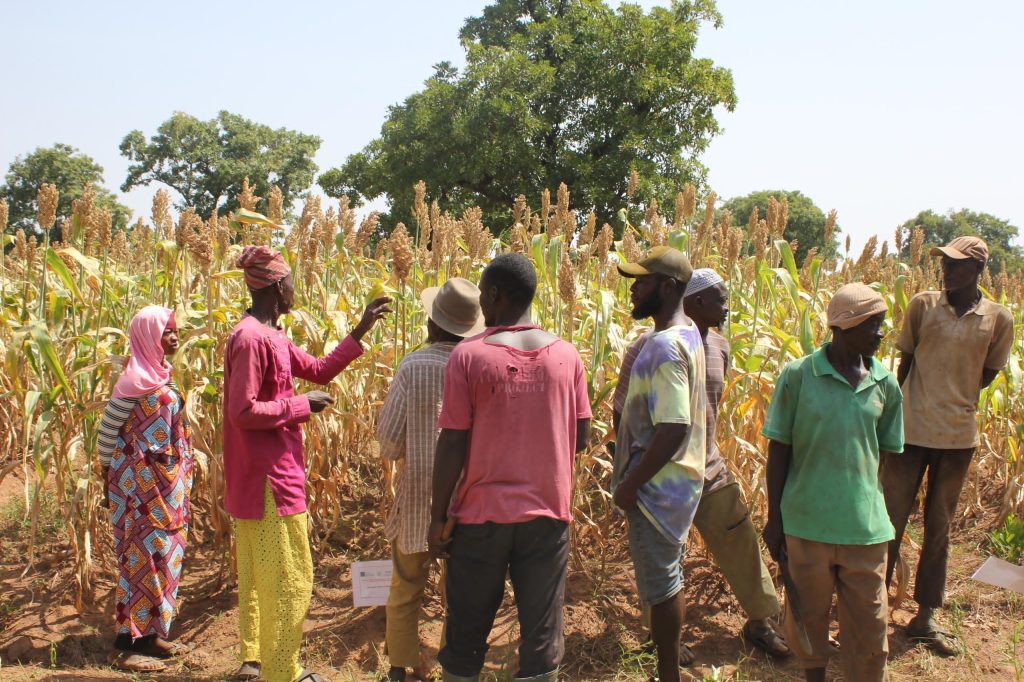By Albert Futukpor
Kpendua (N/R), Dec. 14, GNA – The Council for Scientific and Industrial Research-Savannah Agricultural Research Institute (CSIR-SARI) has showcased the tied-ridges, and the integrated soil fertility management (ISFM) technologies to some farmers in two districts in the Northern and Upper East Regions to help boost food production.
The tied-ridges and ISFM are improved technologies promoting sustainable farming practices to improve rootzone soil water and fertility levels of soils in the northern part of the country.
They were showcased to farmers during field day visits to demonstration farms at Kpendua, Koduziegu and Challam in the Savelugu Municipality of the Northern Region and Daliga in the Nabdam District of the Upper East Region.
It formed part of activities under the EU Horizon 2020-funded project dubbed: “Linking East and West African farming systems experience into a BELT of sustainable Intensification (EWA-BELT) Project GA 862848.
The project is coordinated by the University of Sassari, Italy and implemented in Ghana by the CSIR-SARI and the Kundok Development Consult.
Dr Ramson Adombilla, a Research Scientist and Agronomist at CSIR-SARI, who led the exercise during the field visit to the farms, emphasised the need for farmers to adopt the technologies to mitigate the impact of climate change on agriculture.
He said, “This year, many farmers experienced significant losses due to prolonged drought. Adopting these technologies will help curb the negative effects of climate change on crop production and improve yield on farmers’ fields.”
He explained that tied-ridges technology reduced runoff and trapped rainwater into micro-basins allowing it to gradually infiltrate into the rootzone soil and sustain the crops during dry spells.
He added that the use of ISFM, which combined cow-dung with reduced rates of mineral fertilizers, further enhanced soil structure and nutrient availability leading to improved sorghum yields.
“These innovations are not just about increasing productivity; they are about building resilience in our farming systems. By adopting them, farmers can reduce losses caused by drought and other climate-related challenges,” he added.
Dr Adombilla called for collaboration between farmers, extension officers, and researchers to scale up the adoption of the technologies across the regions.
He assured the farmers of the commitment and continued support of CSIR-SARI in developing and making available innovative and responsive technologies that would improve the livelihoods of farmers and other end-users.

Madam Alberta Selira, an Agricultural Extension Agent, said, “The integrated use of cow-dung and reduced mineral fertilizer rates emerges as the most practical option for farmers since it balances crop yields, production cost and soil health benefits.”
The field day brought together 120 farmers and other stakeholders, who were introduced to the technologies through practical demonstrations and hands-on training.
Participants expressed optimism about how the new practices could transform their farming. “The drought, this year, was a major setback for us but I now see hope in these technologies. I am confident they will help us better manage our soil, water resources, and protect our harvests,” Mr Abukari Issah, a farmer at Kpendua, said
GNA